- Home
- Sharyn McCrumb
Lovely In Her Bones Page 2
Lovely In Her Bones Read online
Page 2
Elizabeth slowed down to get a better look at a calf-sized black billy goat nibbling bushes in a pasture beside the highway. “That’s him,” she announced. “The road I took will be the next one on the left. It’ll be blacktop for about half a mile, and then it turns to gravel.”
“Wonderful,” groaned Bill. “A nice secluded area to go searching for bodies.”
“If you’re afraid, you can wait in the car,” said Elizabeth sweetly.
To the people who lived thereabouts, the road probably had a name, but to the Virginia Highway Department it was only a three-digit number, one of thousands of back lanes, too insignificant to appear on anything besides a county map. It began at the main road, dividing unmown pastures whose barbed wire ended at red clay ditches on either side of it. One meandering driveway led off to a farmstead before the blacktop gave way to dusty gravel, at which point the road began to parallel a rocky creek whose banks formed a steep grade on the right side. Beech and oak trees arched their branches over the road until they touched, forming a green awning patched with sunlight. On a bright July afternoon the effect should have been that of a peaceful country scene; any feelings of foreboding must have been in the minds of the beholders.
Bill scowled at the trees darkening the road. “What did you expect to find down here? Hemlock and wolfbane?”
“Don’t you like it?” asked Elizabeth. “I think it’s rather pretty. Except that it seems a little more deserted than I noticed the first time.”
Milo sighed wearily. “You guys won’t be happy until you see a sign welcoming you to the “Twilight Zone,” will you? Really, you’re making too big a deal over this.”
“Oh, sure,” said Bill. “What’s one more skull, more or less? You’re used to it.”
“Okay. Okay.” Milo held up a restraining hand. “Just don’t get out your cloaks and daggers until I look at the site, okay? If it turns out to be a murder, you two can go back and-I dunno-arrest the goat!”
“Our consultant is a comedian,” said Elizabeth sourly. She pulled off the road and parked the car in a flat space between two trees. “This is where I stopped last time. I left the car here and walked up the bank there through the trees.”
Milo opened the door. “Okay,” he told her.
“Retrace your steps and we’ll follow. Let’s try to keep single file if we can, so we don’t trample any more of the site than we have to.”
“Do you want me to get the tire iron out of the trunk?” asked Bill.
“Suit yourself,” shrugged Milo, “but don’t expect to use it. Whoever did this-if anybody did it-has been long gone. Those earth stains on the skull didn’t get there overnight.”
“There wasn’t anybody around,” said Elizabeth. “I didn’t see a house or any other signs of human habitation. It’s just-woods.”
“Then how did he get here?” muttered Bill.
“Well,” said Milo, “I was going to say ‘Your guess is as good as mine,’ but it probably isn’t. Ask me again after I’ve seen where she found him. Lead the way, Elizabeth.”
For several minutes they walked in silence up the slope of a wooded hill, threading their way around underbrush and fallen tree limbs. Elizabeth had to be dissuaded from stopping once at an outgrowth of ferns and once when she wanted to investigate a prickly-looking plant she thought might be burdock. Bill and Milo vetoed any botanical detours and urged her onward.
“What else can you tell about this guy?” Bill asked Milo.
“Judging from the size of the bones and the nasal cavity, I’d say the skull is that of a male Caucasian,” Milo answered. “I could be more sure in the lab, where I could make precise measurements and compare the data to the discriminate function chart.”
“What’s that?” asked Bill.
“Joe-pye weed, I think,” said Elizabeth. “Can I pick some?”
“No!” snapped Bill. “And I wasn’t talking to you. You keep walking. You’re not lost, are you?”
“Of course not!”
“I was asking Milo about some chart or other he mentioned.”
“The discriminate function chart,” said Milo. “It’s a set of statistics on skull measurements for blacks and Caucasians. When you have to identify a skull, you measure certain points-nose width, angle of the jaw-and compare your findings with the standards on the chart. That ought to give you a pretty good idea whether the person was male or female, black or white.”
“What if it’s a big woman or a very small man?” asked Bill.
“Well, I didn’t say it was foolproof. It’s dealing with averages, after all. But Dr. Lerche says he’d rate it at ninety percent accuracy.”
Elizabeth came to a stop and looked around. The slope had leveled off to a small clearing that extended for about twenty feet to the base of a steep hill, which rose above their heads like a cliff. The clearing itself was ringed by oak and pine, and carpeted with grass and pine needles instead of underbrush.
“This is the place,” said Elizabeth softly.
Milo studied the landscape. “Uh-huh,” he nodded. “I bet it is.”
“Why did you say that?” Bill demanded. “Have you been here?”
“No,” said Milo. “It’s just a hunch. Look, why don’t you two look around in the clearing here for more evidence, and I’ll go walking around a bit farther off. Maybe to the top of that ridge there.” He nodded toward the steep embankment in front of them.
“You’re not going too far, are you?” asked Elizabeth nervously.
“No. I’ll be within earshot. If you find anything, give a yell. Look for bits of cloth on bushes or other bone fragments in the dirt. They may be pretty hard to spot, so be careful where you step.”
“And what will you be looking for?” asked Bill.
“Oh, same kind of thing,” said Milo, smiling. “Whatever I can find. I’ll be back in ten or fifteen minutes.”
“Where should we start?” asked Elizabeth.
Milo considered the question. “Start where you found the skull and gradually branch out in a circular pattern,” he advised her. “I’ll see you in a little while.”
He strolled over to the foot of the steep hill and inspected it, as if he were looking for the most solid pathway to the top. After prodding at a few small rocks, he headed off into the trees, where the ridge began to slope at a gentler angle. Bill and Elizabeth knelt in the pine straw and began to sift through it in search of bone fragments. First, Bill patted the ground with his open hands to see if he felt any bonelike projections, and Elizabeth scraped away the leaves to get a better look at the soil itself.
“Milo really knows his stuff, doesn’t he?” she remarked.
“He ought to,” said Bill sardonically, thinking of drumsticks.
“It’s pretty interesting, too. It must be neat to look at a heap of old bones and be able to tell all about the person they belonged to.”
“Ummm. Here’s something! No, sorry. Just a rock. Are you sure this is where you found it, Elizabeth?”
“I keep telling you: yes.”
“Well, I don’t see any other bones. Maybe the murderer dropped it here and scattered the rest of the bones all over the county.”
Elizabeth looked up. “That’s a thought,” she said, digesting the idea. She pictured a hulking figure with a motorcycle propped against a pine tree, fishing bones out of a black leather saddlebag. “Why don’t I go over to the trees and work toward you? We’ll cover the whole clearing faster that way.”
“Good idea.” Bill nodded.
“Just be sure you look very carefully. Some bones are pretty small.”
Twenty minutes later they had managed to work back together, having covered most of the clearing with nothing to show for their efforts except jeans streaked with clay from knee to ankle. Elizabeth pushed her hair away from her face with a sweaty forearm. “Whew! This isn’t as easy as I thought it was going to be,” she said. “Maybe we should start looking for the murderer’s tracks.”
Bill groaned. “Milo sai
d five years, Elizabeth. Use your head!”
“Oh, that’s right. I forgot.”
“I wish we’d brought some beer. It’s hot out here.”
“Well, I wouldn’t mind getting hot and dirty if we’d found something,” said Elizabeth.
“Hello down there!” called Milo from the top of the ridge. “Made any great discoveries?”
“Get down here!” Bill yelled back.
Milo grinned and made a mock bow. He skittered down the steep side of the embankment, arms outstretched, shifting his footing from one small rock to another. In less than a minute he had made a final bound into the clearing and stood beside them brushing off imaginary dirt. He looked disgustingly clean and eager.
“No rusting and bloody chainsaw?” Milo asked them, beaming. “No buried Viking longboat?”
“Shut up and tell us what you found,” Bill demanded.
Milo became serious. “I think we can call the authorities now,” he said solemnly. “This man was murdered.”
Elizabeth shivered. “I knew it!” she said softly.
“And I can describe the murderer,” Milo concluded.
They stared at him. “How?” they said in unison.
Milo held up a hand for silence. He began to pace as though lecturing a class. “The killer in this case was a white male, between the ages of twenty and forty-five, probably from New York or Pennsylvania, and he was wearing a dark blue suit at the time the killing took place.” He nodded at his audience, gaping at him from a kneeling position.
“Milo, that’s incredible!” Bill burst out. “Did you get all that from a site investigation?”
Milo grinned. “In a way,” he chuckled. “It says on this guy’s tombstone that he was killed at Antietam, so the rest was easy to figure out.”
Elizabeth jumped up. “Are you telling us that this guy was killed in the Civil War?”
“Right.”
“I thought you said five years,” Bill reminded him.
“I also said that after something has been in the ground, age becomes very difficult to determine,” said Milo.
“But he wasn’t in the ground,” said Elizabeth. “He was just sitting there in the middle of the clearing. And there wasn’t any tombstone!”
Milo smiled. “Yes, there was,” he said, pointing to the steep hill in front of them. “It’s up there. There’s a little family cemetery on the top of that hill, and this guy was buried on the edge near the embankment. After so many years, the coffin rotted, the hill eroded some, and volià! The colonel rolls down the hill.”
“So there was no murder,” said Bill, “and all this was for nothing.”
“Oh, I don’t know,” Milo replied. “I was serious about informing the authorities. I’m sure the family will be glad to have Great-Grandpa, or whoever he is to them, restored to his proper place in the family plot.”
They began to walk back down the wooded slope toward the car.
“Now can I stop and look at plants?” asked Elizabeth.
“No,” snapped Bill. “I’m hot and tired, and we haven’t had supper.”
“But I only have two plants! We were supposed to bring in three.”
“Tell them about the skull,” Milo suggested. “They can’t argue with that.”
“It is pretty interesting.” Elizabeth agreed. “Even if it wasn’t a murder case, it was fascinating to see what you could tell just from looking at bones.”
“Oh, I’m no great shakes at it,” said Milo. “You should see Dr. Lerche in action.”
“How did you get to be his assistant anyway?” Elizabeth wanted to know.
Milo grinned. “It’s a long story. I’ll fill you in on the way home.”
Milo refused to tell his story until the car windows had been rolled part of the way up so that he wouldn’t have to shout above the wind, then he waited until the car had turned off the gravel road and back onto the main highway.
“There’s the goat, Milo,” said Elizabeth. “You can start now.”
“How did I get to be Dr. Lerche’s assistant?” Milo asked thoughtfully. “Well, it was because of something that happened when he first came here to the university. I was an undergrad in anthropology in those days, and I worked as a security guard in my dorm-sort of like a night watchman. I handled the small stuff and turned the rest over to the campus cops. The hours were murder, though, since I had to get up and go to class the next day, and I wanted a lab job in the department. I had bugged everybody else in the department without success, so when Dr. Lerche arrived with his new Ph.D. to set up a forensic anthro lab, naturally I went to him straight off and asked if he needed any help.”
“And he hired you?” asked Elizabeth.
“No. He said he’d let me know. He didn’t even have his lab set up at that point; most of the equipment hadn’t even been ordered.”
“So when did he hire you?”
“The next day. Now shut up and let me tell you how it happened.” Milo leaned back against the seat and tucked his hands behind his head. “Okay. Dr. Lerche had already met the district medical examiner because the two of them would be working together on cases. You know forensic anthropologists consult for the state, right?”
They nodded.
“Well, that same day I talked to him, they had a case come in. It was a found body in a pretty bad state of decomposition, and-”
“Wait a minute,” Elizabeth interrupted. “Is this story going to get gross?”
Milo thought about it. “Not really,” he told her. “I won’t get any more graphic than I have to.”
“Okay,” said Elizabeth grudgingly. “Go ahead.”
“All right, the medical examiner brought Dr. Lerche this body and wanted a report on it right away. That meant that he had to get down to the bones quickly so he could go to work.” He glanced over at Elizabeth to see if his explanation had been delicate enough.
“Don’t pay any attention to her,” said Bill. “Go ahead. How did he do that?”
“Well, the method he uses is to boil the body until the flesh comes off-”
“Aargh!” Elizabeth made a face.
“But he didn’t have any place to do it. See, his equipment hadn’t arrived, and he didn’t want to do it in his apartment-”
“Thank God!” said Bill, grateful that precedent had been established.
“All right,” sighed Elizabeth. “What did he do?”
“He called the animal science people and asked if they had any facilities that he could use over in their building.”
“That seems reasonable,” said Elizabeth cautiously. She had been dreading a mention of the cafeteria or some other bizarre site.
“Sure, it was,” Milo agreed. “They offered him their lab facilities right away. The only problem was that the only thing they had for boiling things in was an autoclave.”
“That thing you sterilize instruments in?”
“Yeah. And you know how small it is. No way you could get a whole body in one of those things.”
Elizabeth sighed. “I know I’m going to hate myself for asking this, but-”
“Well, he just put it into the autoclave a piece at a time, right, Milo?” asked Bill.
“Of course. What else could he do? The process was going to take at least twelve hours to do anyway. He started at six o’clock, as soon as the animal science people had gone home for the day. And he just stayed there that night, tending his autoclave and stacking up the clean bones.”
“What does this have to do with you?” asked Elizabeth.
Milo grinned. “There he is, by himself, dressed in ragged cutoffs and an old T-shirt because it’s… uh… inelegant work,” he finished lamely with a glance at Elizabeth. She nodded solemnly, and he continued. “It’s three o’clock in the morning, not another soul in the building, when suddenly the door to the lab bursts open and in walk three campus cops, guns drawn.”
He waited for a moment so that Bill and Elizabeth could grasp the situation. Elizabeth nodded slowly, “So-they
think-”
“Oh, sure! They think they’ve caught Jack the Ripper’s grandson! And he doesn’t have any identification on him. It’s in his good clothes, which he left in his office. At three o’clock in the morning, who’s he going to call? Remember he’d just gotten here and didn’t know many people.”
“Did they arrest him?” asked Bill.
“Yep. He tried to explain what was going on, and they allowed him to go without handcuffs on the strength of that, but they were going to take him down and put him in a cell until they got things straightened out.”
“He went to jail?”
“No.” said Milo. “That’s where I come in. Three a.m. was my break time, when I walked across campus to Burger World for something to eat. That’s what would keep me awake until breakfast time. So I’m strolling past the animal science building when the three cops come hustling out the front door, clustered around a prisoner. I knew the cops, of course. They’d stop in and pass the time with me every now and then. I said hello to Boyce and Wade, and then I saw who it was they’d arrested. Dr. Lerche and I recognized each other at the same time, in fact, but before I could say anything, Dr. Lerche said: ‘This man can identify me! He is my new lab assistant.’ ”
“So you identified him?” asked Elizabeth.
“Oh, sure. I would’ve anyway, but when he said I had the lab job, I would’ve let him be whoever he wanted. The cops apologized and left, and Dr. Lerche and I went over to Burger World and drank coffee and talked. I’ve been working for him ever since. It’s a great job.”
“It sounds interesting,” Elizabeth agreed. “I’d like to study bones-what do you call it?”
“Forensic anthropology. Would you like to work on a dig some time? We often use students as field workers, and I could probably get you hired. I know Dr. Lerche isn’t teaching second summer session, so he might be planning to do field work somewhere. Are you interested?”
“It sounds wonderful,” said Bill.
Milo turned to gape at him. “You mean you’d like to come along?”
“No. I was thinking of getting rid of the two of you for the rest of the summer. Six weeks without bones or weeds. Wonderful!”

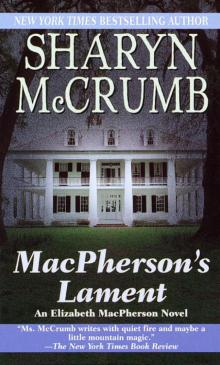 Elizabeth MacPherson 07 - MacPherson’s Lament
Elizabeth MacPherson 07 - MacPherson’s Lament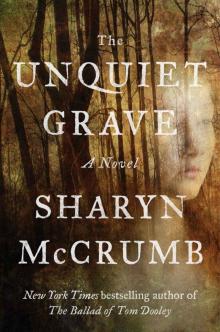 The Unquiet Grave: A Novel
The Unquiet Grave: A Novel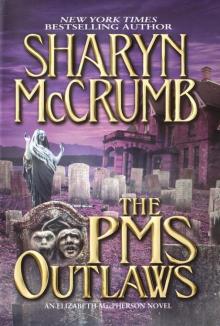 The PMS Outlaws: An Elizabeth MacPherson Novel
The PMS Outlaws: An Elizabeth MacPherson Novel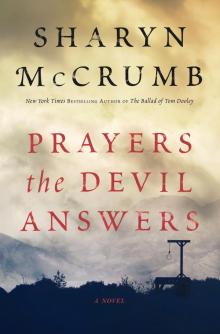 Prayers the Devil Answers
Prayers the Devil Answers Paying the Piper
Paying the Piper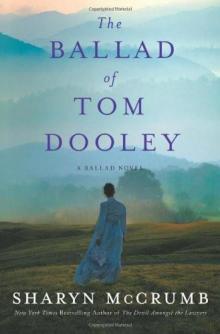 The Ballad of Tom Dooley: A Ballad Novel
The Ballad of Tom Dooley: A Ballad Novel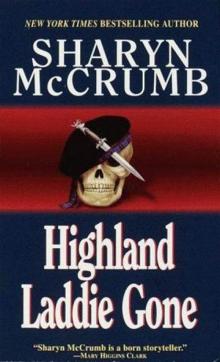 Highland Laddie Gone
Highland Laddie Gone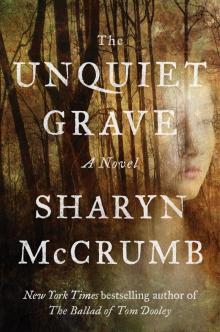 The Unquiet Grave
The Unquiet Grave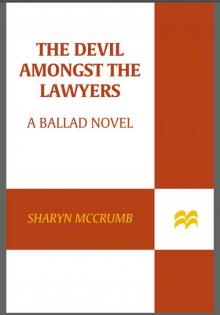 The Devil Amongst the Lawyers
The Devil Amongst the Lawyers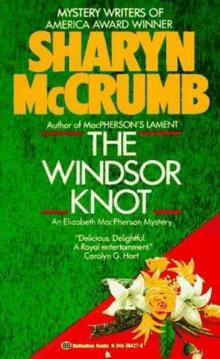 The Windsor Knot
The Windsor Knot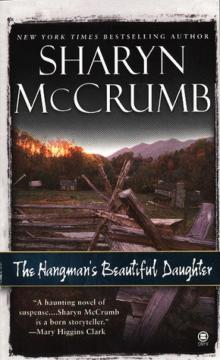 The Hangman's Beautiful Daughter
The Hangman's Beautiful Daughter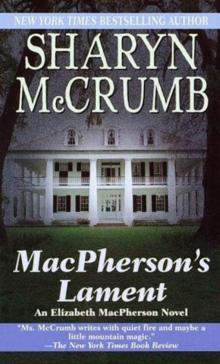 MacPherson's Lament
MacPherson's Lament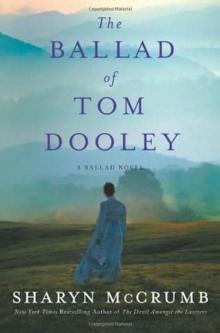 The Ballad of Tom Dooley
The Ballad of Tom Dooley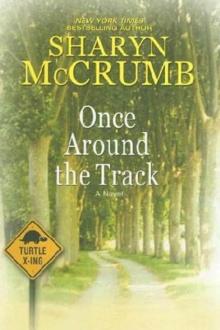 Once Around the Track
Once Around the Track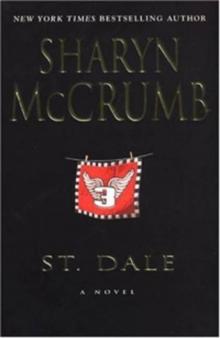 St. Dale
St. Dale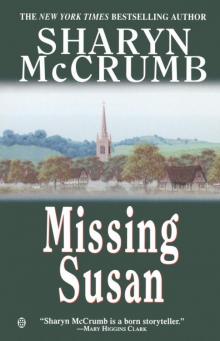 Elizabeth MacPherson 06 - Missing Susan
Elizabeth MacPherson 06 - Missing Susan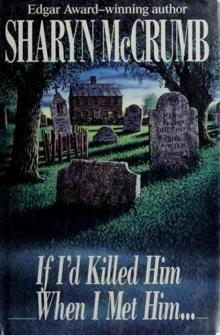 If I'd Killed Him When I Met Him…
If I'd Killed Him When I Met Him…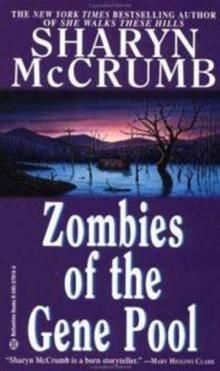 Zombies of the Gene Pool
Zombies of the Gene Pool Bimbos of the Death Sun
Bimbos of the Death Sun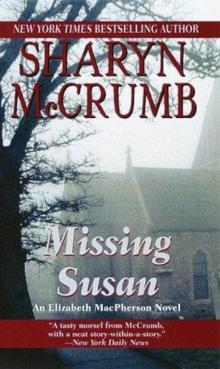 Missing Susan
Missing Susan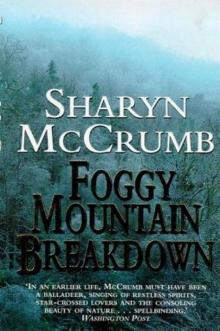 Foggy Mountain Breakdown and Other Stories
Foggy Mountain Breakdown and Other Stories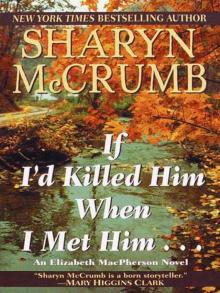 If I'd Killed Him When I Met Him
If I'd Killed Him When I Met Him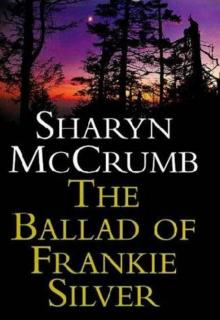 The Ballad of Frankie Silver
The Ballad of Frankie Silver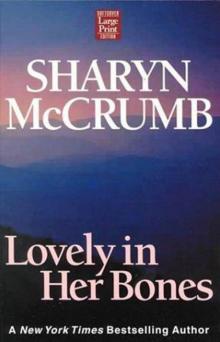 Lovely In Her Bones
Lovely In Her Bones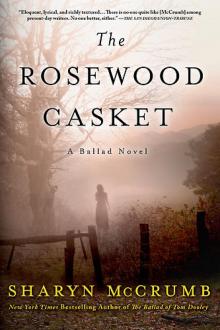 The Rosewood Casket
The Rosewood Casket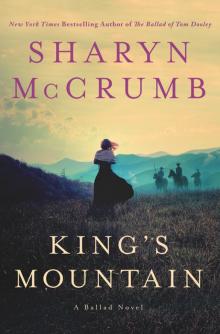 King's Mountain
King's Mountain